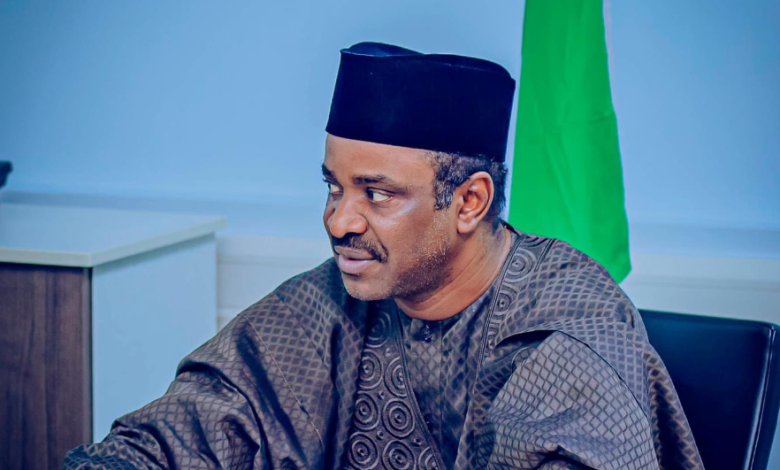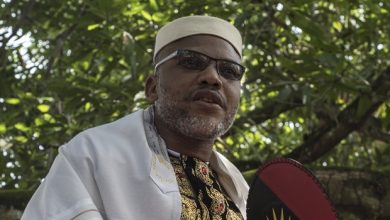Transport Minister Alkali Defends N225.7bn Budget, Pledges Infrastructure Upgrades

Before the Joint Committee of the Senate and the House of Representatives on Land Transport, Senator Said Alkali, the Minister of Transportation, defended the Ministry of Transportation and its agencies’ N225,744,028,687 billion fiscal budget for 2025.
Speaking before the National Assembly’s Joint House, Alkali revealed that the Ministry and its agencies are determined to put in a lot of effort to see that Nigeria’s Integrated Infrastructure Master plan is implemented.
The Minister claims that the joint House’s 2025 budget proposal aims to maintain the progressive output achieved by the 2024 Appropriations Act.
He said that the purpose of these suggestions is to actualize the current administration’s Renewed Hope Agenda, with a focus on modernizing the nation’s train system and other land transportation options.
“More funding is required in this fiscal year to upgrade the current infrastructure in all of the Ministry’s agencies in order to maintain the progressive output under the 2024 Appropriation Act,” he said.
Alkali urged the Joint Committees and the National Assembly to continue supporting the Ministry for effective funding of the ongoing projects and the start of new ones in order to move Nigeria to the next level through efficient transportation, which is widely acknowledged as an enabler of economic growth and a gateway to the nation’s economy. This was in response to recent difficulties the government has faced in securing counterpart funding through loans.
The renovation of the narrow gauge from Lagos to Kano, which is used to transport freight from the Lagos port to the Dala Inland Dry port in Kano, was outlined by Alkali on the 2024 Budget Performance indicator. This had a major impact and revitalized economic activity.
The Transport Minister continued by informing the Joint Committees about the recent commissioning of a 62-kilometer rail track that connects Aba in Abia State to Port Harcourt in Rivers State. Connecting the Eastern Ports to the countryside is the goal, he promised.
In order to alleviate the strain of the removal of the petrol subsidy, which has caused transportation issues in the Federal Capital Territory, the Ministry worked with the Presidential Initiative on Compressed Natural Gas (CNG) and provided 15 CNG buses to three transport unions: the National Union of Road Transport Workers (NURTW), the Road Transport Employers Association of Nigeria (RTEAN), and the National Association of Road Transport Owners (NARTO). These buses will then be distributed to each State of the Federation, Alkali stated.
The Minister claims that the buses are a symbol of the government’s dedication to empowering people as it moves toward a greener energy economy.
Furthermore, he stated that the Nigerian Institute of Transport Technology is collaborating with the Presidential CNG Initiative to establish and open CNG Conversion and Training facilities in the states of Kogi, Borno, Zaria, and Abuja. He stated that this will be made available to all 36 of the Federation’s states as soon as possible.
In his opening remarks, Sen. Mohammed Adamu Aliero, the Chairman of the Joint Senate/House Committees on Land Transport, stated that the effectiveness and growth of our transportation infrastructure were critical to the country’s progress and that this budget defense was a crucial step in determining the course of our future.
As the greatest and only way to alleviate the strain on the nation’s road network, he also emphasized the necessity of developing Nigeria’s rail infrastructure.





